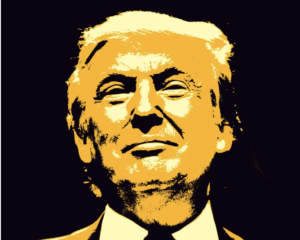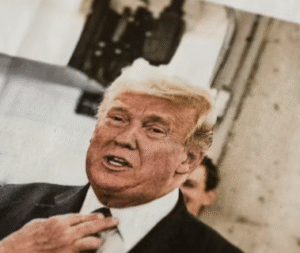#IranHacking #ElectionInterference #CyberSecurity #TrumpCampaign #IRGCHacking #USProsecutors #TehranInfluence #Election2020 #CyberAttack #USIranRelations
In a significant development that has thrown a spotlight on the intricate web of international cyber operations affecting U.S. politics, three Iranian citizens have been charged by U.S. prosecutors with a sophisticated hacking operation aimed at the 2020 presidential campaign of Donald Trump. The charges illuminate the dark underbelly of cyber warfare, where nations engage proxies to subtly manipulate, disrupt, or outright sabotage the political processes of rival states. According to official statements, the individuals in question were not rogue actors; instead, they were allegedly operating under the aegis of Tehran’s Islamic Revolutionary Guard Corps (IRGC), a powerful faction within the Iranian military structure, known for its cyber capabilities and aggressive posture towards the United States.
The case against these Iranian nationals is not just about a single incident of hacking; it exposes the broader scenario of cyber threats that the U.S. faces from foreign adversaries. The indictment details how the accused used advanced cyber techniques to infiltrate and disrupt not only the Trump campaign but also to sow discord and undermine confidence in the electoral process. This operation is part of a larger pattern of cyber incursions emanating from Iran, aimed at influencing U.S. elections and shaping political outcomes in favor of Tehran’s interests. The revelation of these charges comes at a time when U.S.-Iran relations are at a low point, marked by mutual suspicion and heightened tensions.
From a legal and diplomatic perspective, the indictment of these individuals sends a strong message to Iran and other foreign powers that the United States will not tolerate interference in its electoral processes. While the direct impact of the alleged hacking attempt on the election’s outcome remains subject to investigation, the very act of targeting a presidential campaign underscores the vulnerabilities inherent in the digital infrastructures surrounding the U.S. political system. The case also raises questions about the international norms governing cyber operations and the liminal space in which state-sponsored actors operate, challenging global peace and security.
In response to this situation, cybersecurity experts emphasize the need for robust security measures to protect the integrity of electoral systems from similar threats in the future. This includes not just governmental action but also a concerted effort from political parties, campaign teams, and election officials to fortify their digital defenses. As the world becomes increasingly interconnected and reliant on technology, the incident serves as a stark reminder of the persistent threats of cyber espionage and interference that loom over democratic processes. The U.S. government, along with its allies, is now faced with the complex task of deterring such cyber activities while ensuring that the cornerstone of democracy – free and fair elections – remains unblemished by external influence.







Comments are closed.